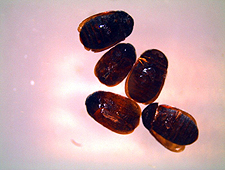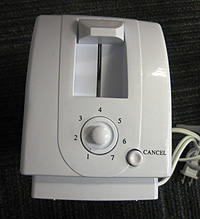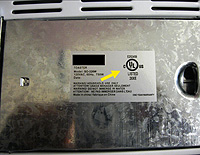U.S. Immigration and Customs Enforcement’s (ICE) Homeland Security Investigations (HSI) teamed with 10 foreign law enforcement agencies to seize hundreds of domain names that were illegally selling counterfeit merchandise online to unsuspecting consumers. Seizures come as US consumers flock to the Web for Cyber Monday shopping deals.
The 706 domain names seized were set up to dupe consumers into unknowingly buying counterfeit goods as part of the holiday shopping season. The operations were coordinated by the HSI-led National Intellectual Property Rights Coordination Center (IPR Center) in Washington, D.C.
An iteration of “Operation In Our Sites,” Project Cyber Monday IV resulted in the seizure of 297 domain names from undercover operations conducted by HSI offices around the country. This is the fourth year that the IPR Center has targeted websites selling counterfeit products online in conjunction with Cyber Monday. Due to the global nature of Internet crime, the IPR Center partnered with Europol who, through its member countries, seized 393 foreign-based top-level domains as part of Project Transatlantic III. Additionally, Hong Kong Customs coordinated the seizure of 16 foreign-based top-level domains hosted in Hong Kong, enlisting the assistance of the web-hosting companies to suspend the service of related websites.
“Working with our international partners on operations like this shows the true global impact of IP crime,” said ICE Acting Director John Sandweg. “Counterfeiters take advantage of the holiday season and sell cheap fakes to unsuspecting consumers everywhere. Consumers need to protect themselves, their families, and their personal financial information from the criminal networks operating these bogus sites.”
During the weeks leading up to the end of the year, the market is flooded with counterfeit products being sold at stores, on street corners, and online, according to law enforcement officials, not only ripping off the consumer with shoddy products, but also putting their personal financial information at risk. The most popular counterfeit products seized each year include headphones, sports jerseys, personal care products, shoes, toys, luxury goods, cell phones and electronic accessories, according to the IPR Center.
“This operation is another good example of how transatlantic law enforcement cooperation works. It sends a signal to criminals that they should not feel safe anywhere,” said Rob Wainwright, director of Europol. “Unfortunately the economic downturn has meant that disposable income has gone down, which may tempt more people to buy products for prices that are too good to be true. Consumers should realize that, by buying these products, they risk supporting organized crime.”
During the last few weeks, the IPR Center and its international partners received leads from trademark holders regarding the infringing websites. Those leads were disseminated to HSI offices in Denver, Dallas, El Paso, Houston and Salt Lake City as well as the Belgium Economic Inspection, Belgium Customs, Denmark Police, Hungarian Customs, French Gendarmerie, French Customs, Romanian Police, Spanish Guardia Civil, City of London Police, and Hong Kong Customs and Excise Department.
The domain names seized are now in the custody of the governments involved in these operations. Visitors typing those domain names into their Web browsers will now find a banner that notifies them of the seizure and educates them about the federal crime of willful copyright infringement.
During this operation, federal law enforcement officers made undercover purchases of a host of products including professional sports jerseys and equipment, DVD sets and a variety of clothing, jewelry and luxury goods from online retailers who were suspected of selling counterfeit products. Upon confirmation by the trademark or copyright holders that the purchased products were counterfeit or otherwise illegal, law enforcement officers obtained seizure orders for the domain names of the websites that sold these goods.
Operation In Our Sites is a sustained law enforcement initiative that began more than three years ago to protect consumers by targeting the sale of counterfeit merchandise on the Internet. The 297 domain names seized under Project Cyber Monday IV bring the total number of In Our Sites domain names seized to 2,550 since the operation began in June 2010. In that time, the seizure banner has received more than 122 million individual views.
U.S. Attorney’s Offices in the District of Utah, Western District of Texas, Southern District of Texas, Northern District of Texas, and the District of Colorado issued the warrants for U.S. seizures. Significant assistance was provided by the Department of Justice’s Computer Crime and Intellectual Property Section.
The HSI-led IPR Center is one of the U.S. government’s key weapons in the fight against criminal counterfeiting and piracy. Working in close coordination with the Department of Justice Task Force on Intellectual Property, the IPR Center uses the expertise of its 21-member agencies to share information, develop initiatives, coordinate enforcement actions and conduct investigations related to intellectual property theft. Through this strategic interagency partnership, the IPR Center protects the public’s health and safety and the U.S. economy.
SOURCE: U.S. ICE (www.iprcenter.gov)



